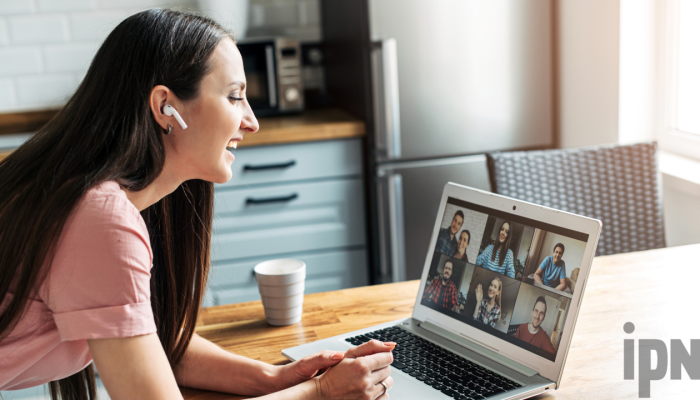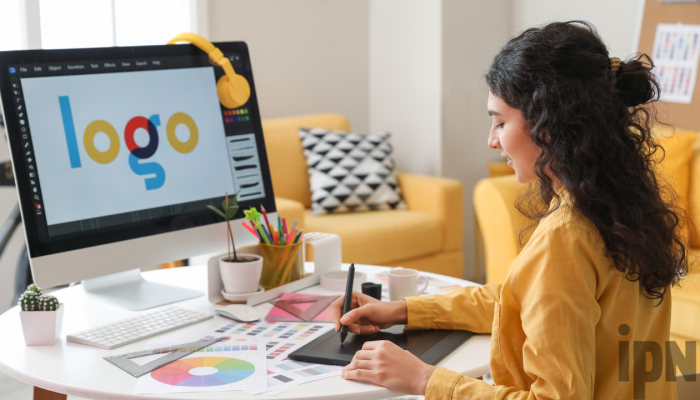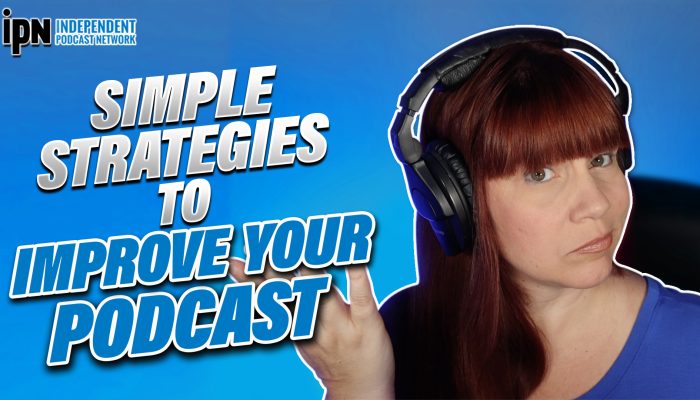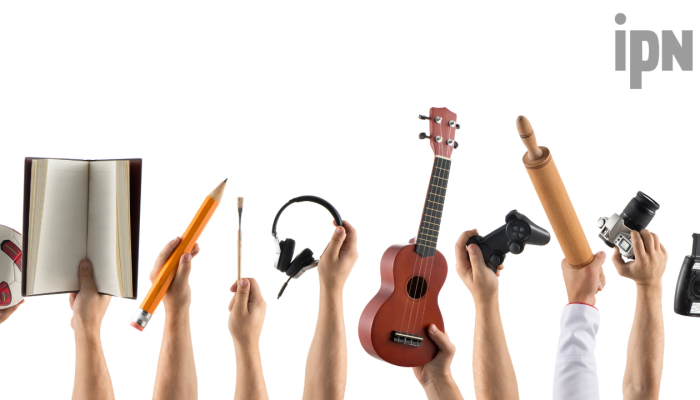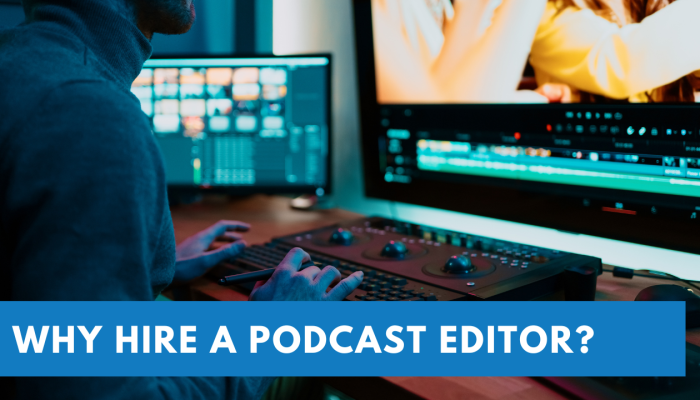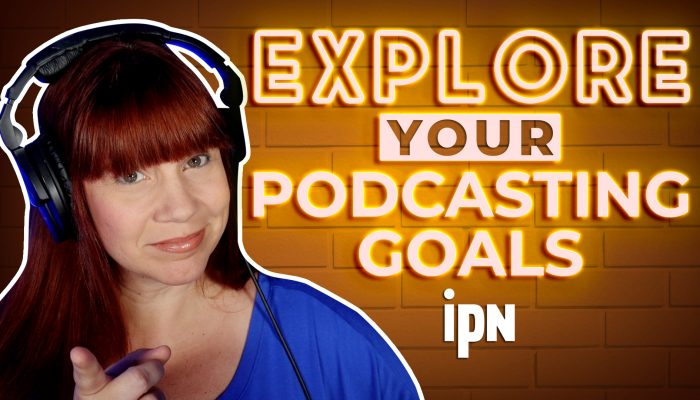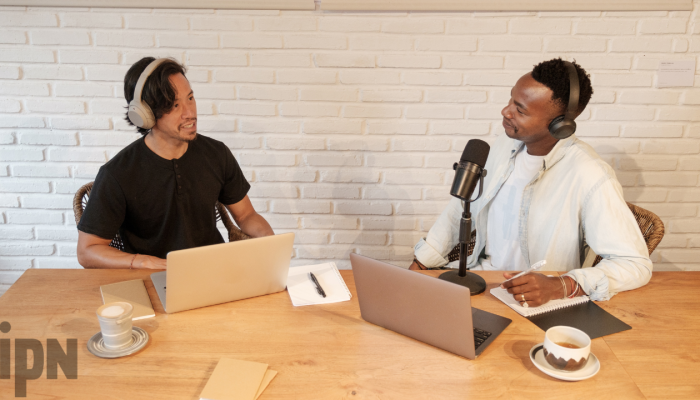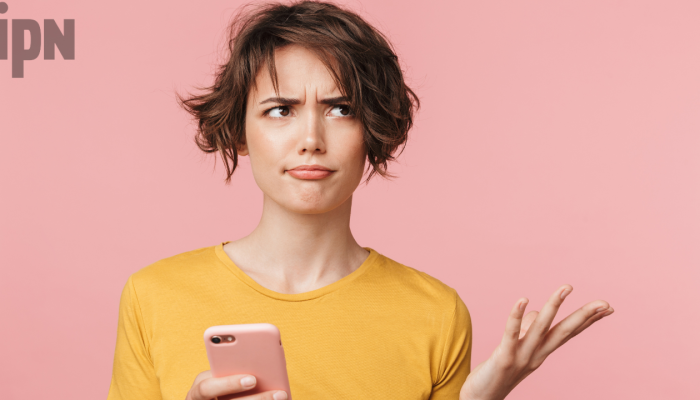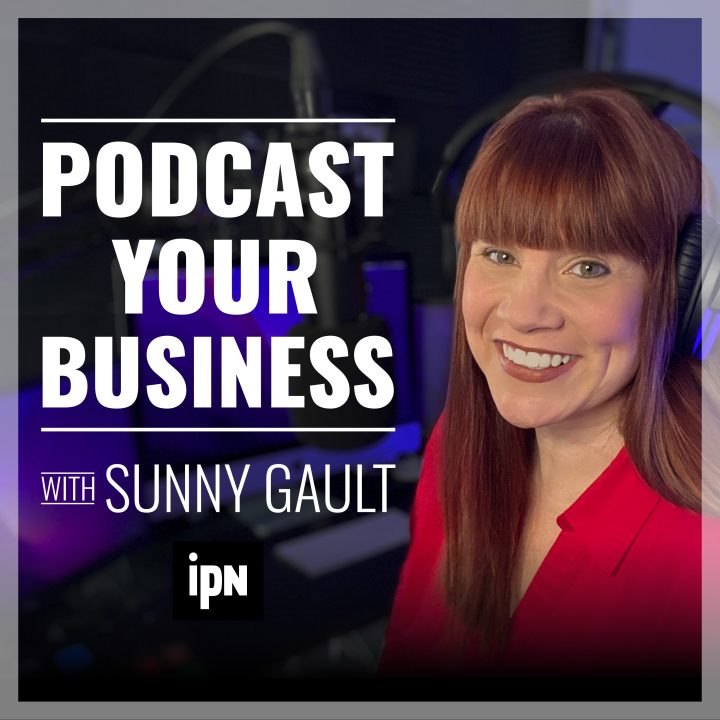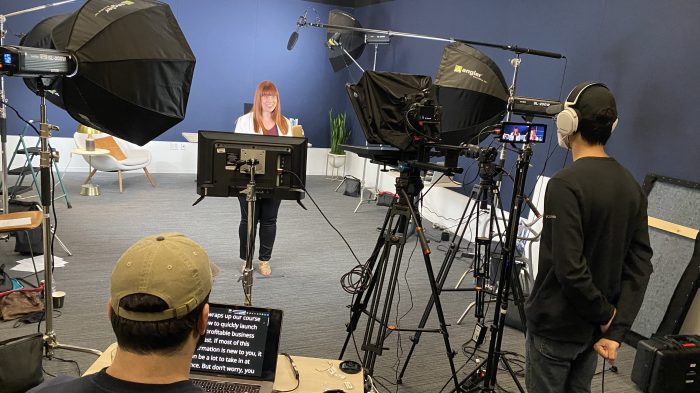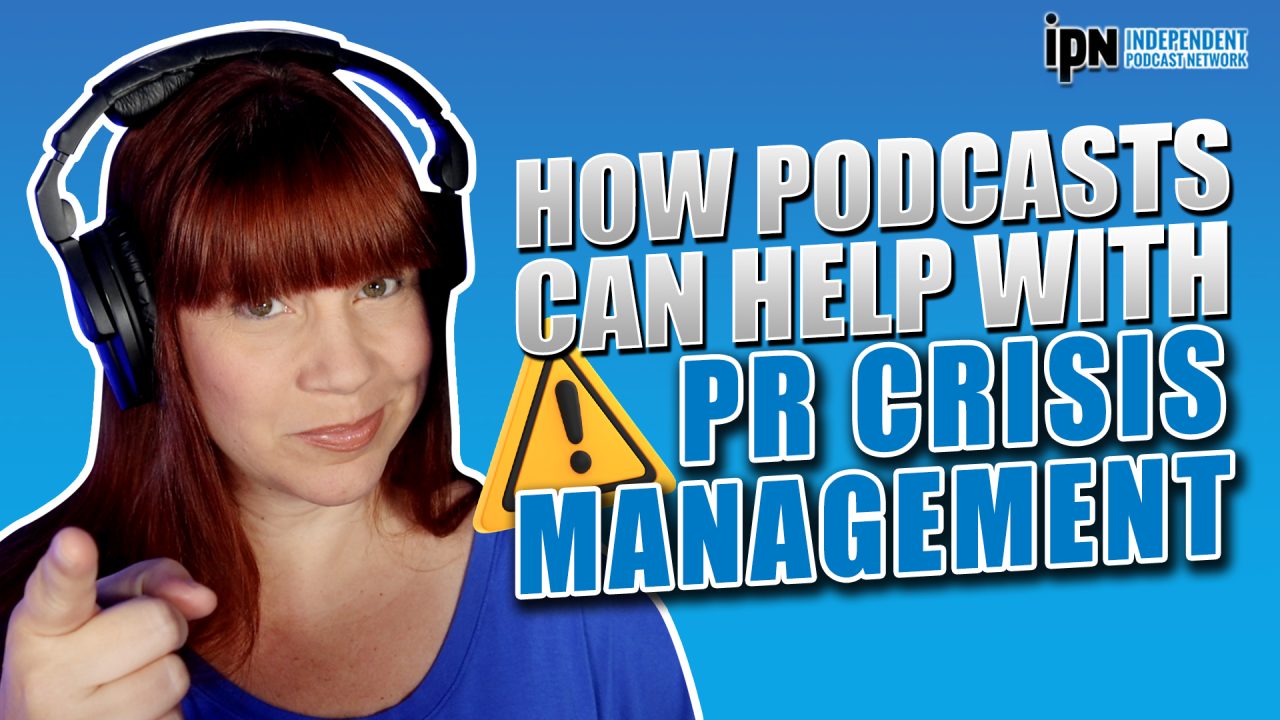
be relatable and take responsibility
Your company is suddenly hit with a PR crisis. You’ve got to get information out to the public, and fast. And you need to make a good impression or things will start to get ugly. Podcasts are great a tool to help you do this quickly and effectively. Even if you don’t have your own podcast, you can still make a positive impact on other people’s shows. So, how do you do this? And what makes podcasting so powerful in this situation? Today we’re exploring how podcasts can help you manage your worst PR nightmares.
Here’s what we’re going to discuss…
- Steps to take in any PR crisis
- How to podcasts can help with a PR crisis
- How I resolved my own PR crisis through podcasting
use this Email Template to get booked on podcasts
Wondering how to approach podcasters to be a guest on their show? Download the template our team uses when pitching me as a guest on various podcasts.

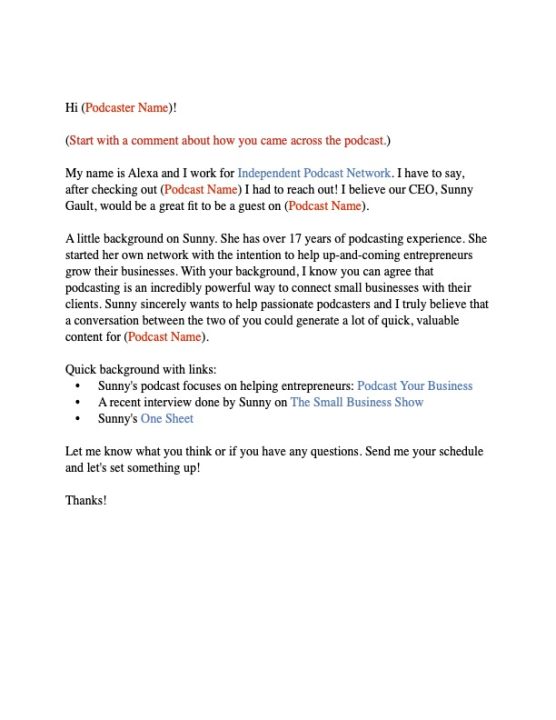
Episode Transcript
0:02
Picture this, your company is suddenly hit with a PR crisis. You’ve got to get information out to the public and fast, and you need to make a good impression or things will start to get ugly. Podcasts are a great tool to help you do this quickly and effectively. Even if you don’t have your own podcast, you can still make a positive impact through other people’s shows. So how do you do this? And what makes podcasting so powerful in this situation? Today, we’re exploring how Podcasts can help you manage your worst PR nightmares. Take it away, Mr. radio man. Podcast Your Business.
0:48
Hello, everybody. And welcome to another fabulous episode of Podcast Your Business. I’m super excited. You’re here with me today. I am Sunny Gault. I’m a podcast coach and mentor and I have been podcasting for 17 years now. I’m also the founder and CEO of a company called Independent Podcast Network, you can find us at https://independentpodcast.network. And we are all about helping podcasts at whatever stage you’re at. So we put out a lot of free content, such as these podcast episodes, blog posts, handouts, free courses, on how to podcast. And then if you’re ready to start working with advertisers, then we can help you monetize your show. Today, I’m here to help you create amazing podcasts for your business. And we do this by mastering the five P’s of podcasting. Alright, so the five P’s of podcasting, this is something that I created when I launched my very first podcasting course for you guys. And the five P’s are prep plan to produce, promote, and profit. These are five categories, if you will, that most podcasting topics fall into. And if you can master these different categories, and the topics that we discuss in them, you’re going to have a successful podcast. I mean, it kind of is formulaic in that regard. So in these episodes for podcast, your business, we focus on a different p. So Mr. radio man, which P are we focusing on today? Promote.
2:20
That’s right, when you’re dealing with any kind of crisis management in your company, or the company that you work for. This is about promotion, you need to put a message out there that might be contradictory, or might just help explain what happened with this whole crisis. Okay, and your perspective from this. So it does fall into promote. And here’s some of the things we’re going to talk about today. First of all, we’re going to talk about any steps you should take in a PR crisis. Because there are some standards, it doesn’t matter. If you’re putting your message out there on podcast, or through a blog post or a press release, a Twitter post, it doesn’t matter, there are still some basic things that you need to follow, right. So we’re going to talk about those steps, just so we’re all on the same page, then we’re going to talk about how podcast specifically can help you get the word out. And some of the benefits of working with podcasts. I’m assuming most people listening to this right now do not have their own podcast if you already have your own podcast, and it’s pretty easy to get information out there through your podcast. So we are going to focus more on okay, maybe you don’t have your own podcast, how do you get the word out through other podcasts? And how do you figure out what podcast to get the word out through, right because there’s some decisions that you have to make. And then finally, I’m going to share my own story of what happened with me, this came out of nowhere, but I do have a personal PR crisis story that I want to share with you and how I use podcast to get me through it. Because it really was a game changer for me. And it helped me not only, you know, give my position on the situation and get that out there to the public. But there was also a huge peace of mind. Like, like P says in like P-E-A-C-E, I had peace of mind. Because I was able to stand up for myself and really be able to move past it. And sometimes like that’s the biggest hurdle, right? Well, we’re gonna get started on all this right after this quick break.
4:32
In the event of any PR crisis, you want to get the word out there as quickly as possible. And you really should have steps in place to know what to do if and when this happens to you. I hope it never happens to you. But let me tell you the story I’m going to tell you about a little bit later on in this podcast. I never thought in a million years that would happen to me. So generally speaking, how can you prepare for something like this to happen again, hope Willie, it never does. But you still need to have a plan in place. Because here’s the thing, you have to act quickly. So you need to know, these are the type of questions you need to ask yourself, and perhaps even your team who all is involved. Like if a crisis happens with your business with your company, or the company you work for, who needs to be involved right away, you certainly don’t want too many cooks in the kitchen, because you need to make decisions quickly. And you also want to be on a unified front. So you don’t want multiple messages going out that are contradictory, or aren’t the exact same message going out just in multiple places, you also need to think about where you’re going to share these messages and how you’re going to share these messages. And this gets into the different mediums, right that you can use, obviously, podcasting being one of them. And then you may even want to assign who is the face or your representative that is going to share this information. Now it obviously depends on where you’re sharing the information, if it’s a Twitter post, or something like that, you may not need to have a face or voice or something behind it. Although I will say if it’s coming from a specific person, and the people know who that person is, it is going to have more meaning just having a general quote from the company is really boring. And people have a tendency not to trust that because there’s no attribution involved. So keep that in mind. Also, once you figure out, you know, your little plan on who’s involved and who you’re going to reach out to all that kind of stuff, for the messaging, you have to take responsibility for your part in it. Whatever happened that did not go your way or, you know, whatever the situation is, usually what happens is, you’re at least partly at fault, you did do something, that if you could do the whole thing over again, he would do differently. So just take responsibility for that. Maybe it wasn’t completely your fault. But don’t go on a whole rampage and get up on your soapbox, and spend most of your time talking about how it wasn’t your fault. And it was other people’s fault, and you go, you know, name dropping, and all this kind of stuff, don’t be defensive, that is not going to get you anywhere. You know, it’s like you know, an animal that’s been cornered. And you know, they’re just defending themselves any way possible. That’s how you come off. So don’t be that person, take responsibility for your company, or perhaps yourself, if you made the decision. Don’t, don’t take responsibility for stuff that wasn’t yours. But just don’t focus on it. Just focus on your involvement, and how things went wrong on your ad. Just explain that to people. And then finally, take some action, do something that is going to assure people that this isn’t going to happen again. So after you explained what happened, show them in some capacity, what you’re going to do differently. Now. That’s really important, because we’re all naturally built to root for the underdog. I think, you know, we want people to be successful, we want, we want to root for you. But if you’re gonna come off all cocky, and defensive, right? And you’re not, you’re not thinking about what you’re going to do differently. Well, then people are going to have a problem with that. They’re okay with people making mistakes. Trust me, we’ve How many times have we seen this with celebrities? Oh my goodness, they make mistake after mistake. And let’s face it, if our own lives were under the microscope, the same thing would be happening, right? So we see ourselves and other people and we get it, we can relate because we know those so you know, maybe not the exact same things. But similar things are happening in our own lives. And we all screw up and that’s okay. But hopefully in your own life, too. When you mess up you think, okay, how do I make sure this doesn’t happen again, that’s all we need from companies as well.
9:03
Now let’s talk about podcasts, and how Podcasts can help you accomplish this and mitigate your PR nightmares. Again, we’re assuming that you don’t have your own podcast, so you need to appear on other people’s podcast. First of all, I do think you need to have a multifaceted approach podcasting. While I’m a huge advocate, obviously of podcasting, you’re not just going to put out a message on some podcast or multiple podcasts and be done with it. It is one tool in your tool belt. Okay, so I just want to make that very clear. But what I love about podcasting, there’s multiple things, and how this can help you with whatever PR issue you’re having. But think about this podcasts are very personal. When you’re listening even right now, with you listening to me, you probably feel I hope you feel like I’m talking directly to you because I’m picturing a single person that I’m talking into I’m not picturing a huge group of people, I’m not giving some huge presentation, I am giving you my heart and soul of what I believe about podcasting, and my own personal podcast experiences. And so it is a very personal experience for someone to listen to a podcast. However, most other media platforms are very impersonal. Right? Again, a tweet from someone, even if it’s tributed, to someone specifically, do you really know that that person said that? How do you know that didn’t come from some PR agency and someone just quickly signed off on it or whatever, you don’t really no. But if you hear someone like, let’s say, a CEO, on a podcast explaining, you know what happened, and you know, whatever scandal or you know, PR nightmare you’re going through, it brings a sense of authenticity, to the situation, because again, we’re humans, we want to connect with other humans, and we get it because we make mistakes, too. But we’re kind of tired. This is why people listen to podcasts, we are tired of the fakeness out there. I think I just made up a word fakeness. But we’re tired of it, we want what’s real. And so if you’re on a podcast, explaining what’s going on here, we can relate to that we can hear your voice, we can feel how you’re feeling, whatever the feeling is, if you’re frustrated, if you’re mad, if you’re sad, whatever it is, we can sense that I’m sorry, but you are never gonna get that through a blog post, or Twitter post. I mean, the closest thing you’re gonna get is a video. Right? Which is great, too. By the way, I know some of you guys have video podcasts. That’s amazing. I think that might even be better. In a situation like this. I know, we’re talking mainly about audio podcasts. But you know, if you can appear on video podcasts where they can see and hear you, there are so much that you pick up with being able to see a person say whatever it is, they’re saying, right, a lot of visual cues that you can pick up on. So again, podcasts are very, very personal. And that’s what you need in this moment.
12:10
They are also long form, which you’re not necessarily going to get with video, most podcasts are at least 30 minutes long, a lot of them are at least 45 minutes to an hour. So it gives you that time that you need to be able to explain a situation and give some context because we all know how much misinformation there is out there. And people are just reading headlines and whatever. And they think they know what’s going on. And they are so uninformed because of that. So the long form content is really important because it gives you time to explain and give some history right as to how this whole situation happened. And then the type of podcast you appear on is also very important, because people listen to podcasts, usually because they somehow connect with the podcast host, I doubt for those of you listening to this podcast. Now, if you didn’t trust me, on some level, you would not be listening to this episode right now. So somehow, I’ve been able to prove myself in some capacity to you so that you continue to listen, that is trust. And the more you podcast, the more trust you build with the more you know, more people, you know, your audience gets bigger, and people trust you. That’s why they’re listening to your show. So the type of podcast you appear on is really important, you want to make sure that it is a reputable podcast that people trust, you know, just do some quick searching online, you’ll find out real quick, you can also look at their reviews, you know, on the different podcasting platforms and see what people are saying about them. I do think that if you can get on a larger show and make the statement and be done with it, that is probably best. I can only imagine how frustrating it would be to have to appear on multiple smaller podcasts and share this message. Especially if this is a PR crisis specifically involving your company, you kind of just want to make a big statement and be done with it. However, I think there are situations where you may want to address something that’s happened in your industry that could throw some shade on your company in general. So maybe you just want to set the record straight, let’s say about cryptocurrency, because that’s your business and there’s some negative information out there about crypto and you want to make the podcasting rounds to set the record straight. That’s another example of a PR crisis. It’s not specifically for your company, but that’s a situation where I would say get on as many podcasts as you can. But in a PR crisis specifically involving your company again, try to get on a larger show. Make Your Case interact. Obviously, with the show hosts, answer their questions, be as thoughtful and mindful and authentic as you possibly can. And I think that’s your best strategy for getting the word out. Keep in mind, too, that a lot of times, especially if this is a video podcast that you appear on, a lot of times other media outlets will take clips from that appearance on the podcast and use it in different ways. So they may take a clip and use it on Tik Tok, you know, these are, you know, general users, right? I’m saying, you know, people want to comment on what’s going on. But I have seen television take clips as well, you’ve seen like, well, this is more for like Twitter and stuff, but they’ll put up like a tweet that someone said, but I’ve also seen them take clips from podcasts, video podcasts. So keep in mind, just because you only appear on one podcast doesn’t mean it’s not going to be used in multiple places, which could be a good thing. All right.
15:56
Now I have a personal story that I want to share with you guys. And I’ll try to make this as brief as possible. But I do have experience going through my own personal PR crisis. Was it huge? Was it something that everyone in the world found out about it? Was mainstream media running stuff on it? No. Okay. But for me, having a small business, it was a very big deal. And I learned a lot from this experience. So let me give you a little bit of background first. As you guys know, I have a set of parenting podcast that I’ve been producing. Since I, I think we launched 2012. So we’re not always in production on all of these shows. But they’ve been around since 2012. And I’ve got five different shows, one of which is a show specifically about breastfeeding. And it helps mothers as they’re choosing to, you know, breastfeed or provide breast milk in some capacity to their children. And especially in the beginning of producing this podcast, we had a ton of lactation consultants on the show. Now, for those of you who don’t know, a lactation consultant is someone that helps moms breastfeed. So they have specific training to do this. A lot of times, they kind of become experts, and they may write books, and they’ve got their own conference and like it’s a big deal. Okay, because breast milk is really important. And that’s why we have a podcast about it, because we’re breastfeeding moms. And we have a lot of questions, right. And we know that this is the best thing for our babies, and we’re trying to do the best thing for our families. So we had a higher level, I would just say, of lactation consultant, who was not happy with an advertiser that we had on our podcast. Now, the show at this point had been around for a couple of years. And she had been a guest earlier in the podcast history. So it’s been like over a year since she’d been on the show. But she heard that we were partnering with a company that produces baby bottles. Now, you would think that you kind of go hand in hand, right, like breast milk baby bottles. But if you follow something called the WHO Code? So who…. World Health Organization code? Well, according to this specific lactation consultant, then that went against the WHO Code. So if you work with any companies that hinder breastfeeding, that’s a no no. And then you are not WHO Code compliant. So she was upset that we had partnered with a very well known baby bottle company, and they provided a bunch of other things to help breastfeeding moms wasn’t just baby bottles. It’s nipple shields and a lot of stuff that guys that are listening right now that are like, what do we really have to hear about all of this? So I will spare you the details. But this lactation consultant said we were violating the Who Code and she wanted her episodes taken down, and she had done a whole series with us. So I mean, I can’t even remember but you know, probably less than 10 episodes, somewhere between five and 10 episodes she had done with us in the past. Like I said, it was over a year ago. And not only did she want her episodes taken down, but she was making a really big stink about this to other lactation consultants. So I started getting requests from other people besides her to have their episodes taken down.
19:22
Now, as a Podcast Producer and a host. You know, we do these episodes because we want to help people. And there’s a lot of time that’s put into these episodes, and I was getting emails all the time about how these episodes were helping breastfeeding moms. And I could not understand why someone who claimed to want to help breastfeeding moms would want content taken down that provided quality information to help them continue breastfeeding. In my mind, I was not doing anything wrong. In fact, the company that we partnered with was a baby bottle company that I’ve heard similarly used that if I hadn’t had bottles in, you know, this whole breastfeeding process, my breastfeeding experience with my children would have ended much, much sooner. So I was not buying this whole idea that bottles prevented breastfeeding. And I was very frustrated with this lactation consultant, and whatever she was saying, you know, again, people that are influential, they don’t necessarily have to say anything. But if they are taking a stance on something, you have a lot of followers out there, that will just be like, Oh, well, she’s doing it, I’m gonna do it. And you just saw this trickle down effect to the point that I had, like 10+ lactation consultants that wanted to have their episodes removed, based on what this one lactation consultant was saying.
20:46
So what I ended up doing, is creating a podcast episode that not only shared my personal experience with all of this, because there was no way that I was going to be able to outreach to all of these lactation consultants, and share my personal experience. With all of this the stuff that I’ve just told you about how bottles helped me, and how we were creating a podcast that was specifically to help breastfeeding moms. And how could anyone that claimed to want to help breastfeeding moms be against that I was partnering with a bottle company, for Pete’s sake. Right. And these are things I was able to say in addition to that not only did the episode talk about my personal experience, where they could hear everything that I’m telling you now and the inflection in my voice, and I still get worked up about it, they could hear that too. But another thing that I did is I reached out to the World Health Organization, which is based in Geneva, Switzerland. And I got a hold of the person that I think they were updating the Who Code, they were doing something at the time, where they actually wanted some publicity about something with the Who Code, I was able to get an interview with that person, which ended up being at like, 2am my time, because I’m in the US. And I was able to ask really difficult questions about what does this who code actually say? And are you saying that, you know, moms can’t use bottles? Is that? Or is that what it? You know, it’s like the game of telephone. Is that what people are saying now, but that was not the true intent. So I was able to get this interview because everyone’s like, Who Code this? Who Code that? I’m like, Well, let’s talk to the Who Code people. I was able to get that interview, I was able to speak my mind in a you know, I mean, I wasn’t mean, but I was emotional, for sure. And I was able to put that out there. So then the question becomes, well, what did it do? Here’s what I can tell you. I can’t say that I had a ton of lactation consultants reach out to me. But I will say that I know that they started, somebody started a Facebook group specifically about this episode, amongst lactation consultants, because I remember logging into Facebook, and at first the group was public. And then they made it private. So I could see it at first, and then it like disappeared. So I know that I had some sort of impact because why else create a Facebook group about this? To discuss, you know, the interview that I had, how it impacted me as a breastfeeding mom, I can’t say I know everything that came out of that, because I don’t, but I do know that I made an impact. I fought back against the main person that I consider to be a breastfeeding bully. And it gave me peace of mind. Because at that point, I was like, I was hardly making any money with my podcast, I’m like, This is not worth it. This is so much stress. And I was really frustrated. I’m like, I just want to help breastfeeding moms. And this lactation consultant is coming against me like what in the world is going on here.
23:54
And so it taught me a lot too. It taught me about the importance of my audience because I had to fight for them. Because I knew I had seen those emails. And I knew how much these episodes were helping these people. Regardless of whatever you’re who code stances, like that’s just semantics. Who cares about that? I’m dealing with real women with real breastfeeding problems, who say this podcast episode that you want to take down, save their pot, or save their breastfeeding experience with their child. I can’t think of a better endorsement than that. Right? And I’ve said this before, but if you don’t have a podcast audience, you really don’t have a podcast, because this is why you’re doing your show is for your audience. And so you have to have that connection. And so that taught me a valuable experience about the importance of your audience and standing up for them at all costs, because I wasn’t sure what was gonna happen. You know, were they you know, going to try to get my podcast taken down like what what was going to happen here? I mean, I really didn’t know. And here I am. I was gonna say single, not single, I’m gonna say like a single person, meaning one person trying, you know, to get my message out there against all of these lactation consultants around the world. But I was able to do it through a podcast episode. So again, that’s just my own personal experience. It was my own PR crisis. When I was going through it, I literally thought the world was ending, I thought all of my hard work was going down the tubes, I thought my podcasts were disappearing. I thought it was all over. And that was so frustrating to me. But at least I was able to put my perspective out there. And it did mitigate itself. It did not, you know, I ended up taking down the episodes for the one lactation consultant that was kind of leading the brigade. And there were a couple other people I ended up taking stuff down for, but I was able to stop the hemorrhaging. Okay. And move on. And again, I learned a lot from that experience. So can podcasts help you manage a PR crisis? Yeah, absolutely. And it didn’t cost me any money either.
26:07
If you are interested and pitching yourself as a guest on a podcast, whether it’s for, you know, PR reasons, because you’re going through a crisis, or it’s because you want to get some more followers, I’ve got some tips for you guys, I have a free download. That basically provides you with a template of what you can send people obviously, you can spice it up and make it your own. But sometimes it’s just getting started sometimes that’s the difficult part, right. So I will include the link to that in the description below. And I also encourage you to check out our website at Independent Podcast Network. Again, we’ve got a ton of free content on our website, including whole podcast courses. So if you want to get started in podcasting, please don’t spend a bunch of money just go to our website, select whatever videos you want. These are all video podcast courses, and check it out. And if you’re a little bit more advanced, still go to the search bar, type in whatever your topic is. And we probably have something on it. We talked a lot about monetization and things you know, growing your audience, things like that, that you may be thinking about if you’ve already launched your podcast and you know, you need to go to the next step. Thanks for listening to today’s episode. Until next week, remember, podcasts are awesome!
